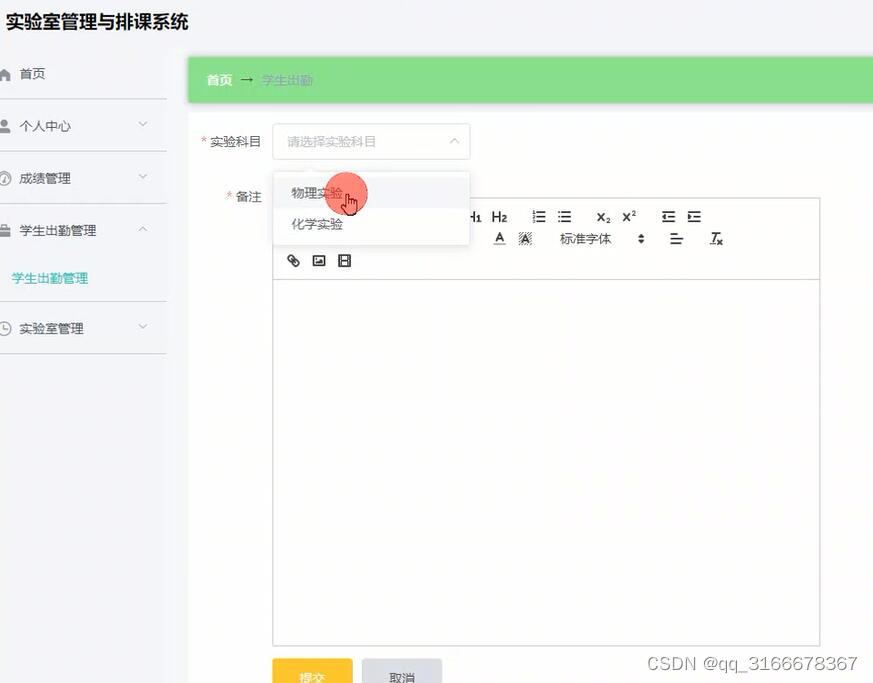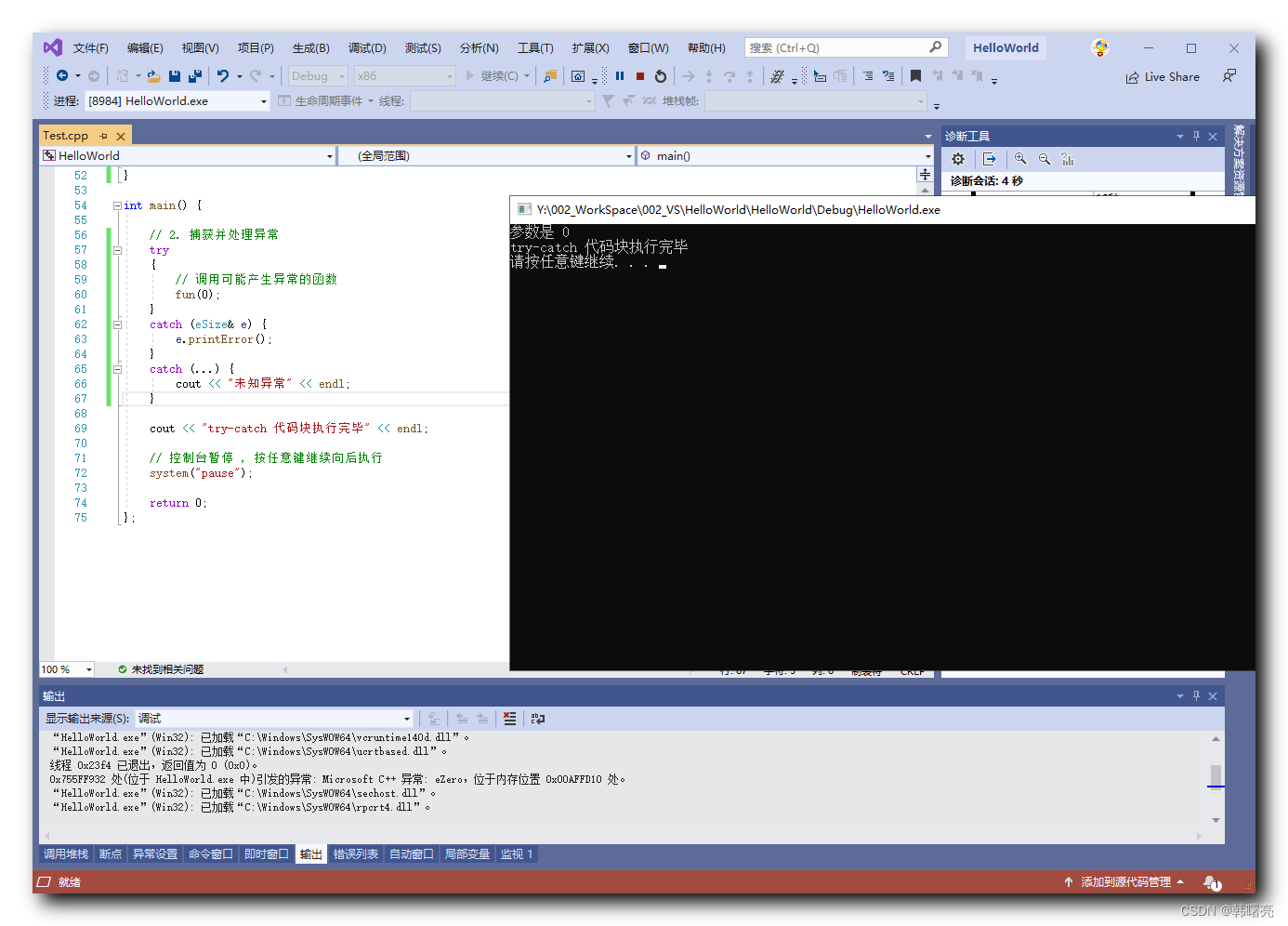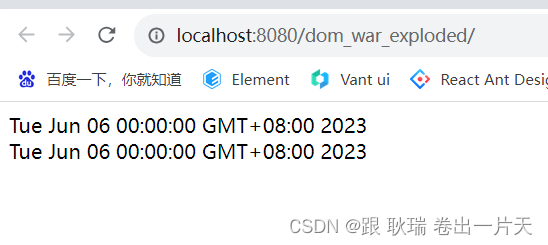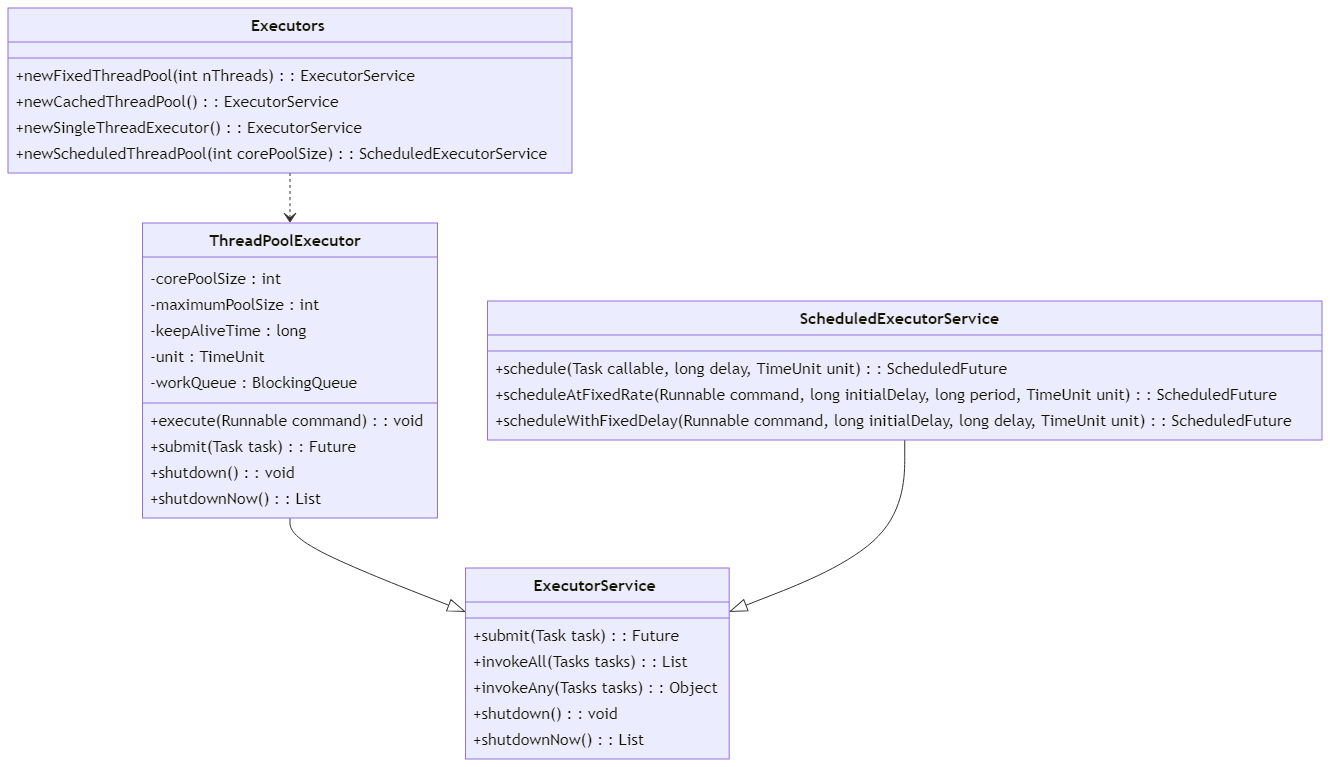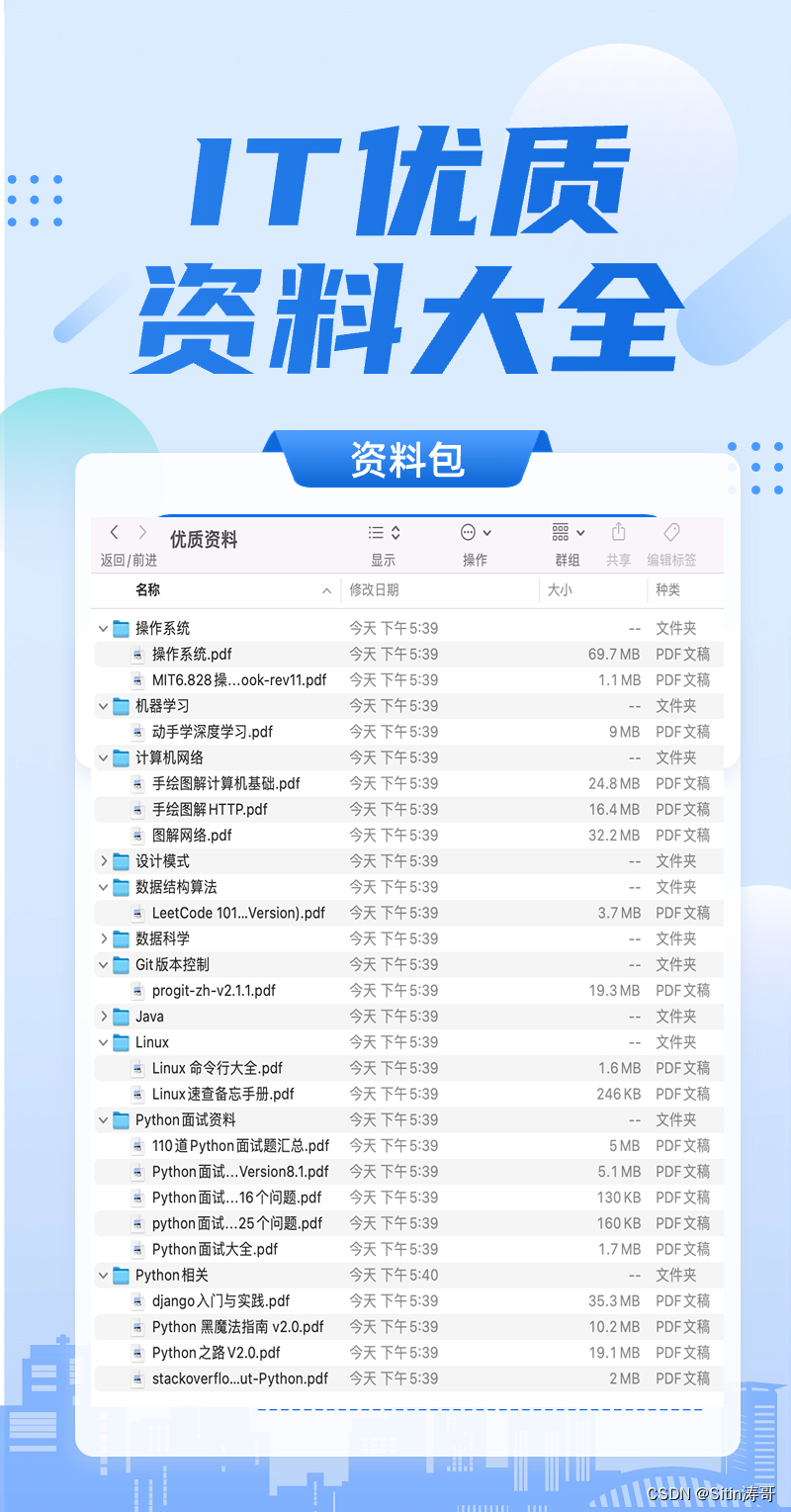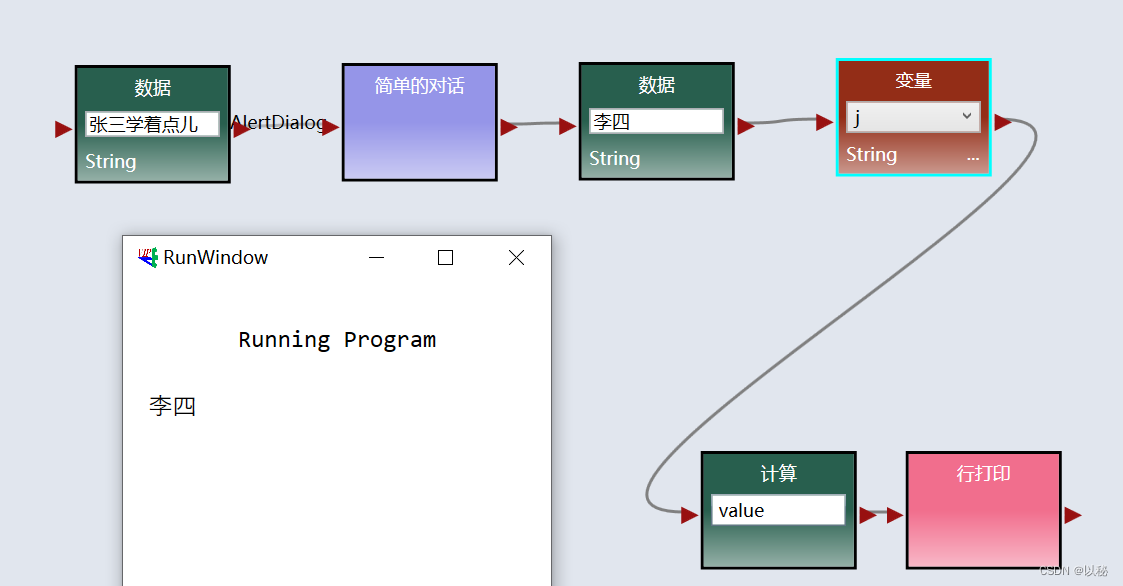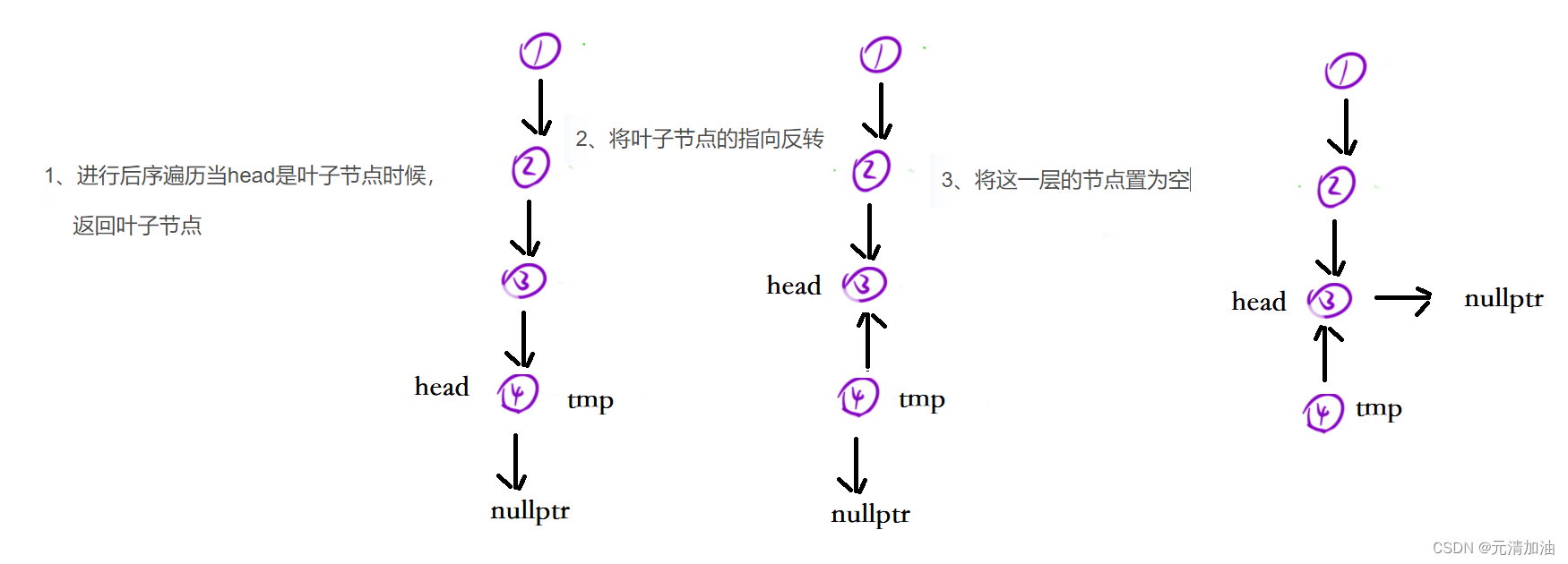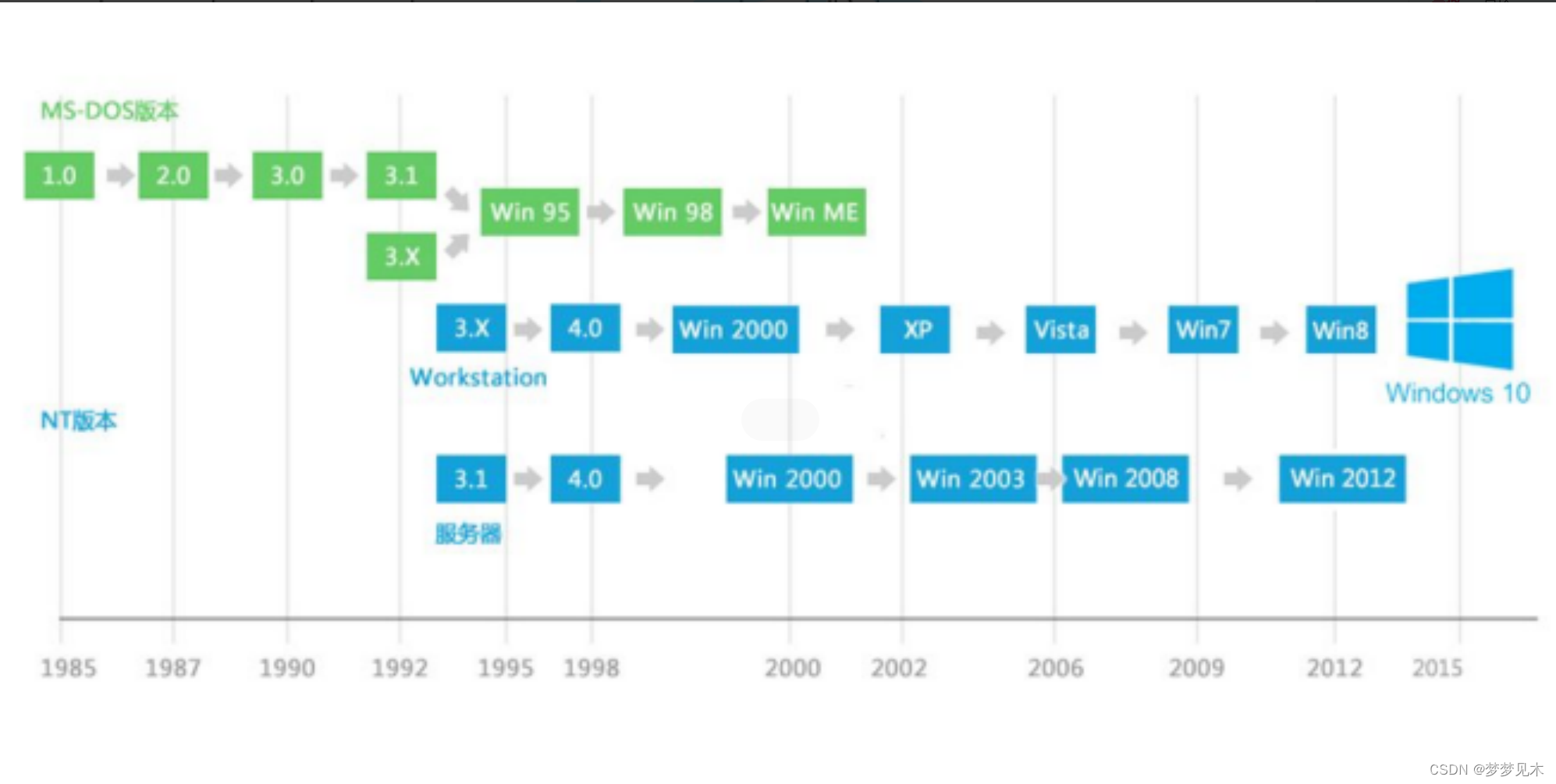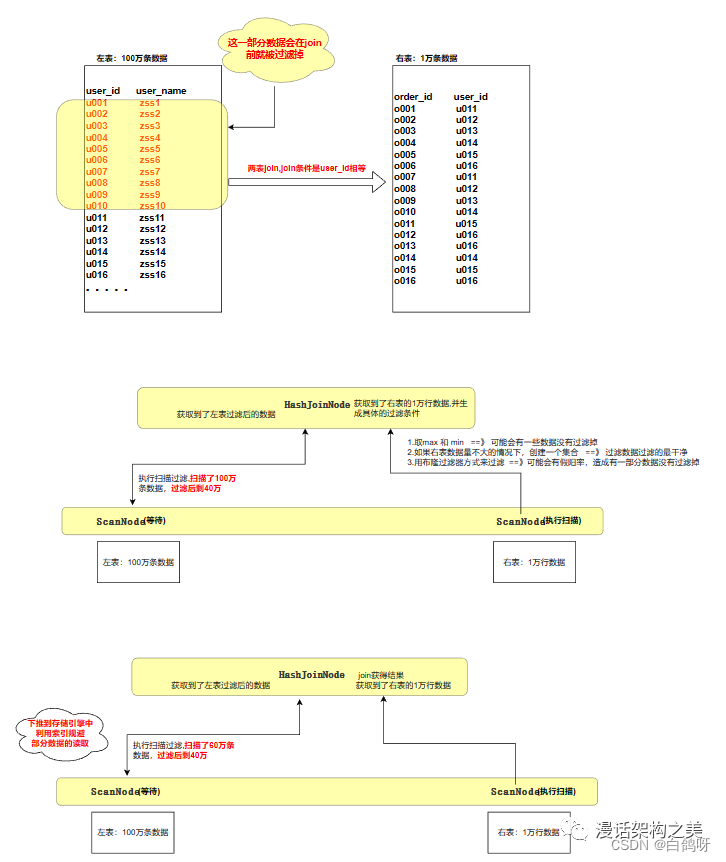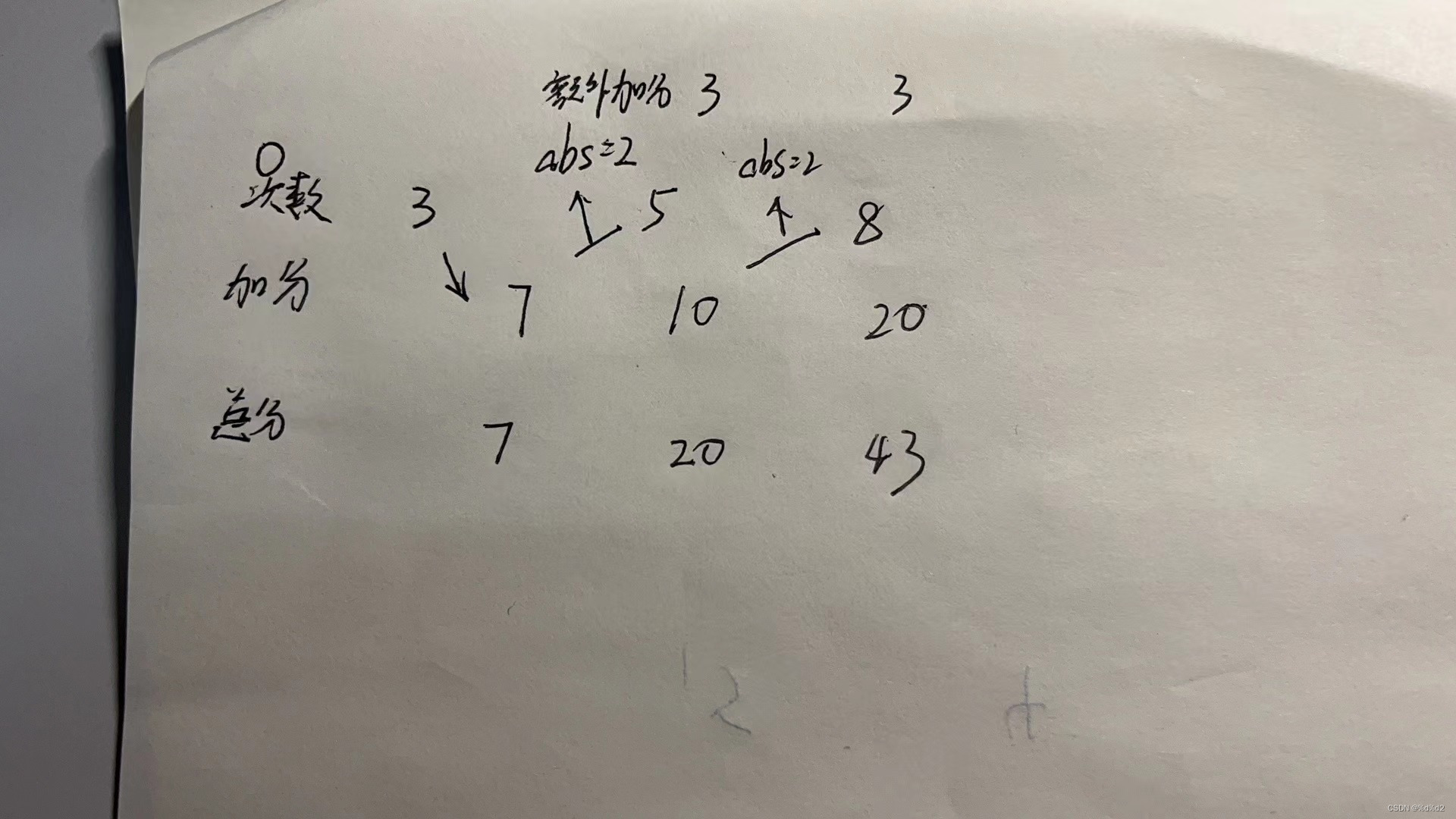本节需要掌握的内容如下:
1,开启任务调度器(熟悉)
2,启动第一个任务(熟悉)
3,任务切换(掌握)
一,开启任务调度器(熟悉)
vTaskStartScheduler()
作用:用于启动任务调度器,任务调度器启动后, FreeRTOS 便会开始进行任务调度
该函数内部实现,如下:
1、创建空闲任务
2、如果使能软件定时器,则创建定时器任务
3、关闭中断,防止调度器开启之前或过程中,受中断干扰,会在运行第一个任务时打开中断
4、初始化全局变量,并将任务调度器的运行标志设置为已运行
5、初始化任务运行时间统计功能的时基定时器
6、调用函数 xPortStartScheduler()
xPortStartScheduler()
作用:该函数用于完成启动任务调度器中与硬件架构相关的配置部分,以及启动第一个任务
该函数内部实现,如下:(感兴趣的小伙伴可以自行对源码进行解读哈,还挺有意思的)
1、检测用户在 FreeRTOSConfig.h 文件中对中断的相关配置是否有误
2、配置 PendSV 和 SysTick 的中断优先级为最低优先级
3、调用函数 vPortSetupTimerInterrupt()配置 SysTick
4、初始化临界区嵌套计数器为 0
5、调用函数 prvEnableVFP()使能 FPU
6、调用函数 prvStartFirstTask()启动第一个任务
源码如下:
void vTaskStartScheduler( void )
{
BaseType_t xReturn;
/* Add the idle task at the lowest priority. */
#if ( configSUPPORT_STATIC_ALLOCATION == 1 )
{
StaticTask_t * pxIdleTaskTCBBuffer = NULL;
StackType_t * pxIdleTaskStackBuffer = NULL;
uint32_t ulIdleTaskStackSize;
/* The Idle task is created using user provided RAM - obtain the
* address of the RAM then create the idle task. */
vApplicationGetIdleTaskMemory( &pxIdleTaskTCBBuffer, &pxIdleTaskStackBuffer, &ulIdleTaskStackSize );
xIdleTaskHandle = xTaskCreateStatic( prvIdleTask,
configIDLE_TASK_NAME,
ulIdleTaskStackSize,
( void * ) NULL, /*lint !e961. The cast is not redundant for all compilers. */
portPRIVILEGE_BIT, /* In effect ( tskIDLE_PRIORITY | portPRIVILEGE_BIT ), but tskIDLE_PRIORITY is zero. */
pxIdleTaskStackBuffer,
pxIdleTaskTCBBuffer ); /*lint !e961 MISRA exception, justified as it is not a redundant explicit cast to all supported compilers. */
if( xIdleTaskHandle != NULL )
{
xReturn = pdPASS;
}
else
{
xReturn = pdFAIL;
}
}
#else /* if ( configSUPPORT_STATIC_ALLOCATION == 1 ) */
{
/* The Idle task is being created using dynamically allocated RAM. */
xReturn = xTaskCreate( prvIdleTask,
configIDLE_TASK_NAME,
configMINIMAL_STACK_SIZE,
( void * ) NULL,
portPRIVILEGE_BIT, /* In effect ( tskIDLE_PRIORITY | portPRIVILEGE_BIT ), but tskIDLE_PRIORITY is zero. */
&xIdleTaskHandle ); /*lint !e961 MISRA exception, justified as it is not a redundant explicit cast to all supported compilers. */
}
#endif /* configSUPPORT_STATIC_ALLOCATION */
#if ( configUSE_TIMERS == 1 )
{
if( xReturn == pdPASS )
{
xReturn = xTimerCreateTimerTask();
}
else
{
mtCOVERAGE_TEST_MARKER();
}
}
#endif /* configUSE_TIMERS */
if( xReturn == pdPASS )
{
/* freertos_tasks_c_additions_init() should only be called if the user
* definable macro FREERTOS_TASKS_C_ADDITIONS_INIT() is defined, as that is
* the only macro called by the function. */
#ifdef FREERTOS_TASKS_C_ADDITIONS_INIT
{
freertos_tasks_c_additions_init();
}
#endif
/* Interrupts are turned off here, to ensure a tick does not occur
* before or during the call to xPortStartScheduler(). The stacks of
* the created tasks contain a status word with interrupts switched on
* so interrupts will automatically get re-enabled when the first task
* starts to run. */
portDISABLE_INTERRUPTS();
#if ( configUSE_NEWLIB_REENTRANT == 1 )
{
/* Switch Newlib's _impure_ptr variable to point to the _reent
* structure specific to the task that will run first.
* See the third party link http://www.nadler.com/embedded/newlibAndFreeRTOS.html
* for additional information. */
_impure_ptr = &( pxCurrentTCB->xNewLib_reent );
}
#endif /* configUSE_NEWLIB_REENTRANT */
xNextTaskUnblockTime = portMAX_DELAY;
xSchedulerRunning = pdTRUE;
xTickCount = ( TickType_t ) configINITIAL_TICK_COUNT;
/* If configGENERATE_RUN_TIME_STATS is defined then the following
* macro must be defined to configure the timer/counter used to generate
* the run time counter time base. NOTE: If configGENERATE_RUN_TIME_STATS
* is set to 0 and the following line fails to build then ensure you do not
* have portCONFIGURE_TIMER_FOR_RUN_TIME_STATS() defined in your
* FreeRTOSConfig.h file. */
portCONFIGURE_TIMER_FOR_RUN_TIME_STATS();
traceTASK_SWITCHED_IN();
/* Setting up the timer tick is hardware specific and thus in the
* portable interface. */
if( xPortStartScheduler() != pdFALSE )
{
/* Should not reach here as if the scheduler is running the
* function will not return. */
}
else
{
/* Should only reach here if a task calls xTaskEndScheduler(). */
}
}
else
{
/* This line will only be reached if the kernel could not be started,
* because there was not enough FreeRTOS heap to create the idle task
* or the timer task. */
configASSERT( xReturn != errCOULD_NOT_ALLOCATE_REQUIRED_MEMORY );
}
/* Prevent compiler warnings if INCLUDE_xTaskGetIdleTaskHandle is set to 0,
* meaning xIdleTaskHandle is not used anywhere else. */
( void ) xIdleTaskHandle;
/* OpenOCD makes use of uxTopUsedPriority for thread debugging. Prevent uxTopUsedPriority
* from getting optimized out as it is no longer used by the kernel. */
( void ) uxTopUsedPriority;
}
/*-----------------------------------------------------------*/二,启动第一个任务(掌握)
2.1,prvStartFirstTask () /* 开启第一个任务 */
想象下应该如何启动第一个任务?
假设我们要启动的第一个任务是任务A,那么就需要将任务A的寄存器值恢复到CPU寄存器
任务A的寄存器值,在一开始创建任务时就保存在任务堆栈里边!
注意:
1、中断产生时,硬件自动将xPSR,PC(R15),LR(R14),R12,R3-R0出/入栈;
而R4~R11需要手动出/入栈
2、进入中断后硬件会强制使用MSP指针 ,此时LR(R14)的值将会被自动被更新为特殊的EXC_RETURN
用于初始化启动第一个任务前的环境,主要是重新设置MSP 指针,并使能全局中断
1、什么是MSP指针?
程序在运行过程中需要一定的栈空间来保存局部变量等一些信息。当有信息保存到栈中时,
MCU 会自动更新 SP 指针,ARM Cortex-M 内核提供了两个栈空间:
主堆栈指针(MSP):它由 OS 内核、异常服务例程以及所有需要特权访问的应用程序代码来使用
进程堆栈指针(PSP):用于常规的应用程序代码(不处于异常服务例程中时)。
在FreeRTOS中,中断使用MSP(主堆栈),中断以外使用PSP(进程堆栈)
2.2,vPortSVCHandler () /* SVC中断服务函数 */
当使能了全局中断,并且手动触发 SVC 中断后,就会进入到 SVC 的中断服务函数中
注意:SVC中断只在启动第一次任务时会调用一次,以后均不调用
三、任务切换(掌握)
任务切换的本质:就是CPU寄存器的切换。
假设当由任务A切换到任务B时,主要分为两步:
第一步:需暂停任务A的执行,并将此时任务A的寄存器保存到任务堆栈,这个过程叫做保存现场;
第二步:将任务B的各个寄存器值(被存于任务堆栈中)恢复到CPU寄存器中,这个过程叫做恢复现场;
对任务A保存现场,对任务B恢复现场,这个整体的过程称之为:上下文切换

PendSV中断是如何触发的?
1、滴答定时器中断调用
2、执行FreeRTOS提供的相关API函数:portYIELD()
本质:通过向中断控制和状态寄存器 ICSR 的bit28 写入 1 挂起 PendSV 来启动 PendSV 中断

上表摘取于《Cortex M3权威指南(中文)》第131页。
PendSV中断是如何触发的?
1、滴答定时器中断调用

1、PendSV的任务切换操作(出栈,即恢复现场)
